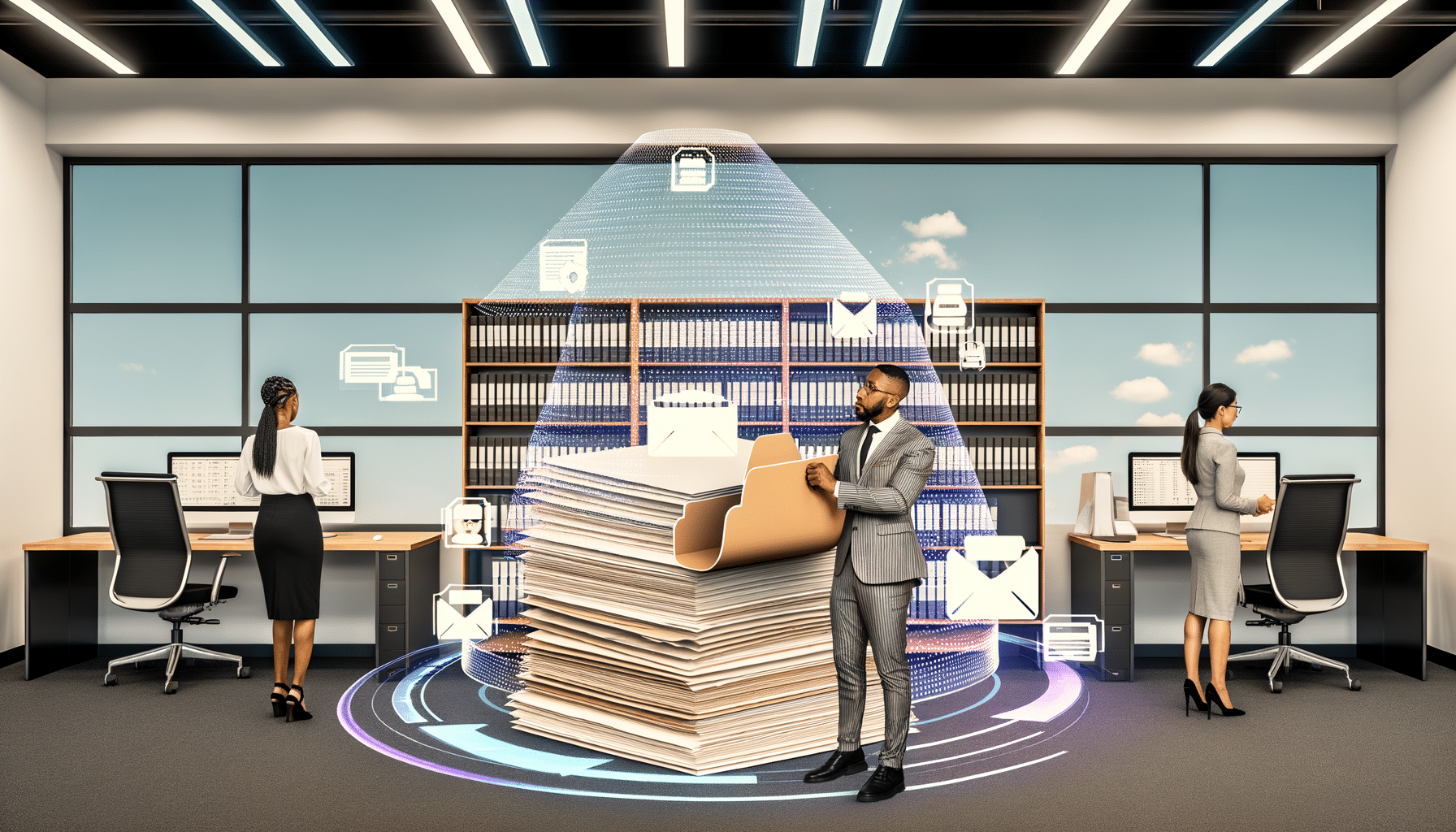The evolution from physical to digital is no longer a distant future—it’s right here, and it’s radically reshaping industries across the spectrum. As we’ve embarked on this exciting journey, transitioning legal archives from physical to digital has become not only an operational imperative but a strategic milestone.
The Call for Digital Legal Archives
I’ve seen firsthand how the traditional management of legal archives is fraught with inefficiencies. The sheer volume of paper records presents significant logistical challenges, from secure storage to tedious retrieval. In a world that demands instant access and zero room for error, this simply won’t do. Moving towards digital archives offers a clear solution, with features like automated categorization and retrieval powered by AI and Blockchain—foundational technologies that RecordsKeeper.AI harnesses to streamline your processes.
Overcoming the Challenges of Transition
Transitioning from physical archives to digital isn’t without its challenges. Concerns often circulate around data integrity and regulatory compliance. Here at RecordsKeeper.AI, we mitigate these issues through blockchain integration. Offering tamper-proof, immutable records, we guarantee that every document remains unaltered and verifiable. Furthermore, our compliance management tools automate regulatory workflows, making adherence to industry standards like GDPR and HIPAA, seamless and stress-free.
Step-by-Step: Transitioning to Digital Archives
Restructuring your record-keeping can be daunting, but it isn’t insurmountable. Here’s a step-by-step approach that I advocate:
- Assessment: Begin with a comprehensive audit of the existing physical records. Document the types, volumes, and importance of the archives.
- Categorization: Utilize AI-powered tools for automated categorization, ensuring each file is accurately tagged, expediting future retrieval processes.
- Digital Conversion: Start digitizing with high-quality scanners. Ensure documents are scanned clearly and saved in accessible formats, such as PDF/A, which are optimal for legal records.
- Data Security: Establish secure digital storage solutions—data rooms with controlled access and real-time activity tracking are a must.
- Implement Compliance Protocols: Automate your regulatory adherence for smooth operations and immediate response to audits, using RecordsKeeper.AI’s compliance management features.
- Review and Iterate: Regularly review your digital archives system, leveraging audit logs and reports to optimize processes for efficiency and security.
Benefits of a Digital Transition
Transitioning to digital archives offers unparalleled advantages:
- Efficiency: Automated retrieval of digital records eliminates the time-consuming process of manual searches.
- Cost-effectiveness: Diminished reliance on physical storage space cuts down costs significantly.
- Environmental Impact: Going paperless plays a crucial role in reducing your organization’s carbon footprint.
- Accessibility: Instant access to records anywhere, anytime, boosts productivity and enhances decision-making.
Our platform at RecordsKeeper.AI exemplifies these benefits, enabling a seamless, efficient, and secure transition to digital archives. The era of digital transformation is upon us, offering an unprecedented strategic advantage to legal departments poised to embrace it.
Conclusion
As the world rapidly advances, the digitization of legal archives isn’t merely an option—it’s a necessity. With tools like automated categorization, secure data rooms, compliance management, and blockchain integration, we can transform the task of record management into a strategic advantage.
If you’re ready to make the leap to digital, join us on this journey and modernize your record management process. For more insights on digital transformation and the wonders of AI and blockchain in record keeping, stay tuned and follow along with my experiences and lessons. Let’s shape the future of legal archives together.








